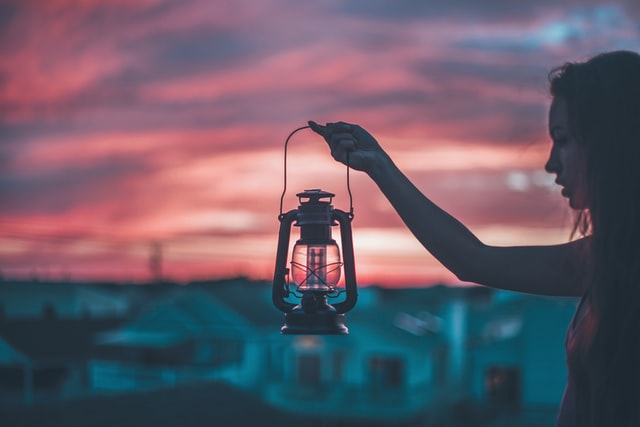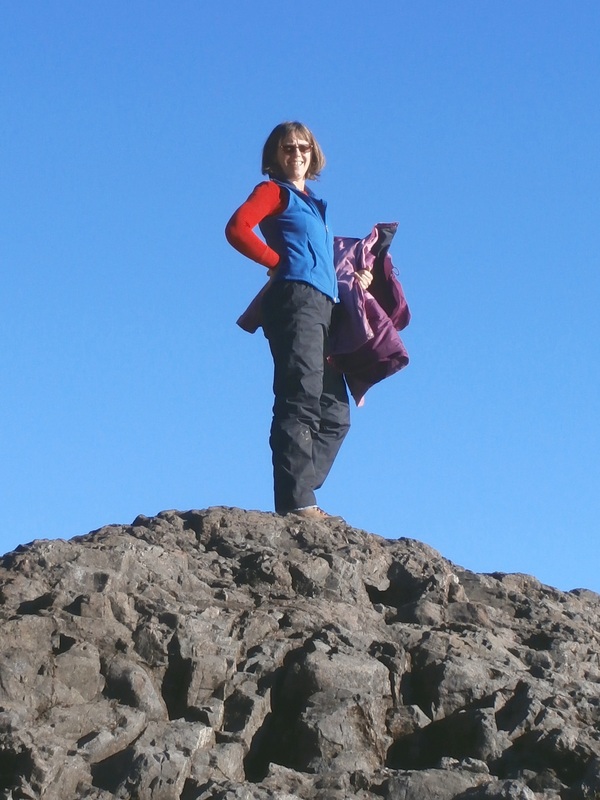|
A Reflection on Matthew 25:1-13, The Parable of the Bridesmaids
Delivered at St. David of Wales Episcopal Church, Shelton WA November 8, 2020 When I read this parable for the first time as a new Christian in the mid-1980s, the end of the world through nuclear war weighed heavily on my mind, and my newfound faith in God didn’t offer any comfort when I encountered this scripture passage. I wasn’t yet part of a faith community and I didn’t know how to read the Bible any other way than literally. Jesus said, “Keep awake,” and I’d kept awake all my life plagued by insomnia as far back as I could remember. My father, a deputy sheriff, patrolled the streets all night, and I cowered under my covers at six, seven, and eight, afraid of intruders without him home to protect us. At age ten and eleven, alone overnight with my little sister, I tossed and turned all night, terrified of intruders without my mother home to protect us. “Keep awake,” Jesus said. But my childhood vigilance couldn’t guarantee anything except exhaustion the next morning. I didn’t expect anything different as an adult. In my mid-twenties, I still lay awake in fear most of the night, if it wasn’t Armageddon, it was that my husband would leave at the slightest disagreement. I could keep awake away all night, but I still wouldn’t know the day or the hour that the world would explode, or my own life implode. Living through three parental divorces before I was fifteen and, having each one come as a complete shock, I knew I belonged with the foolish and unprepared bridesmaids. I knew which side of the door the nuclear holocaust and the second coming would find me on. Now, in thirty-five years as a believer immersed in communal faith, worship, and study, I’ve learned something about the Bible, how it was written, and the varying contexts for its content. I’ve come to understand it not as an encyclopedia or repair manual, but as an ongoing conversation with God and the prophets, psalmists and apostles, Jesus and readers over the centuries. So, when I discovered that the Parable of the Bridesmaids was the gospel lesson for today, I was thankful for the opportunity to redeem this troubling passage and to form a new understanding of its meaning. I turned, as I always do, to articles from writers, preachers, and theologians for their thoughts on the scripture. I was surprised, and a little relieved, to find that everyone I consulted struggled with this parable. In her essay at Journey With Jesus (.net)*, Reverend Debie Thomas, Director of Children and Family Ministries at St. Mark’s Cathedral in Palo Alto, CA, writes: I’ve never liked the parable of the ten bridesmaids. When I first heard it as a child, I annoyed my Sunday School teacher by asking all the “wrong” questions in response: why do the bridesmaids have to bring their own light to a wedding reception? Why are the “wise” bridesmaids stingy and mean? Why doesn't the groom show up for his own wedding until midnight? Why does the bride — whoever she is — put up with such a ridiculous delay? Where even is the bride in this story? And why, after keeping his poor bridesmaids waiting for hours, does the groom blame them for lateness — and shut his door in their faces? “In all honesty,” she says, “these questions still bother me.” They bother me, too. I suppose some of the wedding logistics would make more sense to us if we lived in first century Palestine. We’d know what role the bridesmaids were expected to fulfill and what sort of delay the groom might have encountered that would’ve been long enough to put all the bridesmaids to sleep. I can only extrapolate from my own experience. When I got married as a college student thirty-eight years ago, my husband and I ordered tuxedos from Sears to save money. On the wedding day, when one of his groomsmen went to pick up the order, Kevin’s tux was nowhere to be found. After fruitless phones calls and spread-the-blame-run-around, he was finally presented with a hastily tailored ill-fitting outfit pulled off a mannequin. During the delay, I sat with my dad inside an air conditioned building (unlocked only for us by an acquaintance), but everyone else stayed put at their stations and on folding chairs inside an arbor. The guests and wedding party sweated in the August heat as 1 p.m. came and went and the clock inched toward 2 p.m. Some worried there wouldn’t be a wedding at all, thanks to a groomsman who thought it’d be funny to say Kevin had cold feet rather than nothing to wear. Through it all, none of my bridesmaids fell asleep, and none wandered off to a restroom to restyle her heat-wilted hair, or drove to the nearest 7-11 for a cold beverage. Everyone was a little thirsty and bedraggled when it finally came time to process. But everyone was there. Everyone stayed. And for all the questions and interpretations this parable raises, for all the wrestling with the literal and metaphorical meanings of the over-prepared but stingy bridesmaids, of minimally prepared and flighty bridesmaids, of the never mentioned bride, and of the woefully tardy and arguably cruel groom, it is what happens to those who’ve fallen asleep once they wake up that intrigues me. It is the possibility of staying that shimmers in my mind as I encounter the scripture today. What if the bridesmaids who were running out of oil stayed put and were there to welcome the groom in the sputtering lamp light as their oil ran dry? What if they stayed even if that meant being seen with all their faults on display and having to admit to their failures? What if the oil-poor bridesmaids stayed and seeing their plight close up, the oil-rich bridesmaids had a change of heart and shared from their flasks? We can never know the hour or the day (sort of like this week as we waited for election results). And so far, the waiting for Jesus’ return continues. So, what if we accept the inevitability of falling asleep sometimes? And what if learn to keep awake in anticipation rather than fear? What if we say yes to the wedding invitation and come just as we are? What if God wants only us, and our inner light, not what light we carry in our hands? What if together, we all learn to dance in the dark? What if? *For more of her thoughts on this scripture, I invite you to read Debie Thomas’s reflection. Photo by Thought Catalog on Unsplash
0 Comments
|
I began blogging about "This or Something Better" in 2011 when my husband and I were discerning what came next in our lives, which turned out to be relocating to Puget Sound from our Native California. My older posts can be found here.
Categories
All
Archives
September 2023
Newsletters |

